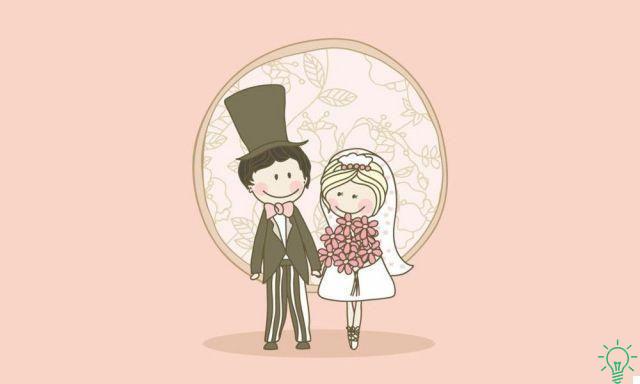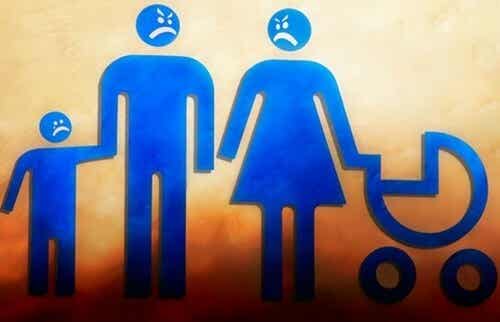There are those who tolerate and justify their partner's abusive or toxic behaviors by saying that they do it because they love too much. What transpires in these cases is actually a situation of codependency, born of a deep insecurity and fear of abandonment.

Last update: June 19, 2022
There are people who are willing to do anything or to endure any humiliation in the name of love. They start from the premise that when you love there must be, first of all, self-denial. The mechanism of codependency is just that: giving love without conditions and forgive once or a hundred times if necessary. All in order not to lose or displease your loved one.
Within this group of people we find, for example, mothers who repeatedly pay their children's debts. They know it is not right, but they justify such action in the name of love. But also those people who hug the same partner who mistreated them shortly before. They don't leave him, and if they do, it's to get back together soon after. According to them, when one loves no offense is able to break the bond that unites them.
“The victim depends on the aggressor, there is emotional dependence. But the aggressor also depends on the victim, because he bases his self-esteem on domination. "
-Ana Isabel Gutierrez Salegui-
The truth is that such cases are not indicative of a love out of the ordinary, but of a relationship of codependency. The person feels an overflowing and unmanageable affection, he literally feels that he cannot live without the other.
It is therefore willing to do anything not to break that bond. What stands out in these cases is not a dispassionate love for the other, but a lack of love for oneself.
Do you love too much or do you need too much?
A codependent person acts unconsciously on one principle: I need you to need me. This is his way of building meaningful bonds in life. His nature is to "save" the other, cashing in and mitigating any negative consequences resulting from its actions.
Added to this is the lack of self-love. Your own needs and desires always take a back seat, only what the other wants or desires counts. These are people willing to sacrifice themselves, unjustly, convinced that when one loves, one must give oneself to the other unconditionally.
This situation only generates suffering and anxiety. When you love a lot, you risk having sleep problems or experiencing a state of constant restlessness, eating disorders or other problems. The person says he loves the other, but sooner or later he turns his attention and care into control problems, oriented to keep the partner tied to oneself.
Codependency is the need to feel essential
The hallmark of codependency is that on the one hand it is there a person who has a strong desire to feel useful or essential. Someone with a fragile and problematic personality, far from being mature or autonomous. This creates a bond in which at one pole there is an individual with shortcomings and difficulties, but who does not want to be responsible for himself. On the other hand, the partner takes on a responsibility that is not his or her own.
And here comes an unhealthy symbiosis. A relationship built on mutual abuse and tacit agreement: one "undertakes" not to solve their problems, the other to prevent them from doing so, all in exchange for unconditional love. It is a neurotic plot that is difficult to recognize and analyze for those who experience it firsthand.
The codependent only fuels the abusive behavior of the employee. His excesses of consumption, of anger, of passivity, of everything. As well as the excessive demands of him. All this will help him not to draw a limit, because nothing scares the codependent like the idea of not being needed anymore. In his head, if the other person no longer needs his protection, she would walk away from him.
When you love too much, perhaps deep down you feel nothing but a strong fear of abandonment. In this type of "love" suffering wins, not happiness. They are typical of people with never elaborate deficiencies or abuses dating back to childhood.
To get out of such a situation, it is necessary to recognize that much of what one feels or feels is not the result of love, but of fear. We must also learn to cultivate self-love rather than project the lack of that love onto the other.


























